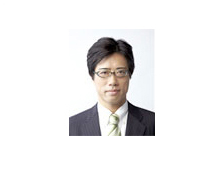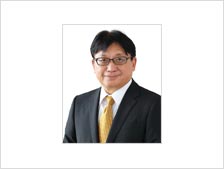Third-party Opinion

Consulting Fellow, Research Institute of Economy, Trade, and Industry
Toshihiko Fujii
1. The Ambitious Format of the Integrated Report
Sojitz Group’s Integrated Report for this fiscal year is one of only a few Japanese companies’ fiscal reports which does not have its CSR section separate from the main body (in fact, I cannot recall any other company which does this). I believe this is reflective of Sojitz Group understanding that CSR is a necessary part of their long-term growth strategy—a welcome change in an environment where most companies still consider CSR to be separate from their business. It also seems like a logical choice to integrate these parts considering the global consensus that the main audience for these reports is long-term investors.
It goes without saying that Sojitz Group is also simultaneously working to meet stakeholders’ many informational needs, posting detailed information to the Sojitz Corporation homepage about initiatives dealing with the environment and sources of procurement.
Having given my opinion on the ambitious “Integrated Report” format that they have selected for this fiscal year, I will now give my opinion on the information disclosed via their homepage.
2. Greater Long-term Vision
The three pillars supporting Sojitz Group’s value creation model are 1) the development of human resources, 2) speed, and 3) the mutual and cyclical generation of two types of value: value for society and value for the company. This kind of value creation model works effectively as a meta-strategy nested within each individual business strategy. More than anything, these “two types of value” form one of the biggest characteristics differentiating this model from that of competitors.
[Two Types of Value]
One of the assumptions behind long-term growth is that the good or service offered must be something socially necessary. In that sense, all the examples of actual value creation given are great for drawing readers’ attention. Allow me to make a request here, however. Looking back at any successful business after the fact will generally reveal that it has created these two types of value, because there is no such thing as a commercial enterprise which does not carry some kind of social value. On the other hand, these two types of value are not always achievable a priori. There are countless “still-maturing businesses” which do not succeed as a business even though they create social value. Solutions for most social problems do not provide enough value to be considered viable commercial ventures, leaving these problems to persist. What companies should communicate through these case studies is the process, not the result. What difficulties did the company overcome to create two types of value? What did they do to transform this solution into a business? The experience gained from this process spirals outward to become the driving force behind long-term growth. For next year’s report, I would like Sojitz to delve deeper into what competencies are required to create two types of value, if possible. This could also serve to explain the opportunities, risks, and value inherent in each Division’s businesses. I think this kind of information would be very interesting to long-term investors.
[Diverse talent, speed, and trust]
President Yoji Sato stressed “diverse talent,” “speed,” and “trust” in his explanation of the Medium-term Management Plan. I couldn’t agree more with this sentiment. Their importance cannot be overstated, as three elements belonging to the same concept. Whether diversity of staff raises business ability all depends on whether a shared philosophy exists between the staff. A shared philosophy can lead to trust in the company’s direction, and naturally, speed as well; quick decision-making and fast action are only possible once the company has both created a shared philosophy internally and has built strong relationships externally. Once unified, these three elements can help Sojitz achieve the goals of the Medium-term Management Plan, providing a foundation for deploying their growth strategies.
When it comes to Sojitz’s talent base as well, it is heartening to see a company putting so much effort into promoting global diversity and female staff. Creating a company where people can work comfortably regardless of nationality, gender, or any other affiliation is required for a company like Sojitz to grow. At the same time, they must combine this with the shared philosophy and trust that I mentioned.
3. Progress on CSR Initiatives and Lingering Issues
[CSR Procurement]
It was very good of Sojitz to set a wood procurement policy in September of last year, and even better that they developed the policy in collaboration with the WWF. Cooperating with an international NGO like this is extremely effective in building trust in the policy. Procurement will continue to be one of the most important parts of their CSR policy, as you would expect from a company with a business value chain covering a world of diverse environmental and human rights issues. It might not seem like much that Sojitz has incorporated CSR procurement training as part of their HR policy, set up an organization to handle this, and worked to create a shared awareness of CSR among the company’s many departments. However, I want to be clear that this first step does indeed matter.
It also goes without saying that in the years following, we should expect to see similar initiatives for businesses outside of wood products.
[Environment]
Released environmental data basically matches the figures from last year. On the other hand, it is clear that work to combat global climate change will grow in international importance following the resolution of COP21. Going into the next Fiscal year, Sojitz will need to consider how to strengthen its environmental initiatives in light of recent events.
This has been my comments on Sojitz’s FY2015 Integrated Report and the CSR information on their homepage. Let me conclude by saying that I look forward to Sojitz Group’s long-term growth bringing even greater joy to people around the world, their resolve earning the recognition it deserves, and their greater efforts ultimately achieving these aims.
On Third-party Opinion
Thank you so much for your comments about Integrated Report 2015. For this fiscal year, we focused on communicating Sojitz Group’s value creation process in a way easy for stakeholders to understand. This led us to revise the content and change the name to “Integrated Report.”
We see CSR as a business challenge for our company. For this year’s Integrated Report, we have re-positioned the value creation process as a Value Creation Model applicable to all of Sojitz Group’s business activities, and changed the format to illustrate the elements of CSR throughout the Integrated Report. This enables us to easily communicate how our businesses honor the corporate statement.
As you mentioned in regards to our ‘two types of value,’ we must do more than simply look at our businesses after the fact in order to evaluate their social value. We must come up with ways to take the process by which each of our nine divisions creates ‘two types of value’ and reposition this as a story, as well as make further improvements to communicate our company’s growth and business potential to stakeholders.
Regarding our wood procurement policy which you spoke of so highly, we have decided to confirm our logging situations in term of both sustainability and business competitiveness, respond to our stakeholders’ various perspectives, and promote the development of a management policy. We will also continue necessary dialogue over those issues which are important to both Sojitz and society at large.
We are aware that both the CSR procurement and efforts to combat climate change which you mentioned can be included in this distinction. We will continue to pursue such efforts and adequately disclose related information.
In preparation for the next Integrated Report, we are currently considering what kind of CSR/ESG-related policies are required to achieve the long-term growth anticipated by long-term investors and other stakeholders. We plan to share this information in a way which is easy for stakeholders to understand, keeping disclosure of these policies in mind and figuring out how they can contribute to our long-term growth strategies.
Through a combination of Sojitz’s diverse talent, speed, and trust, we intend to honor the promise of the Sojitz Corporate Statement: to create “value and prosperity by connecting the world with a spirit of integrity.”

CSR Committee, Committee Chairman
Masayoshi Fujimoto, Executive Officer
